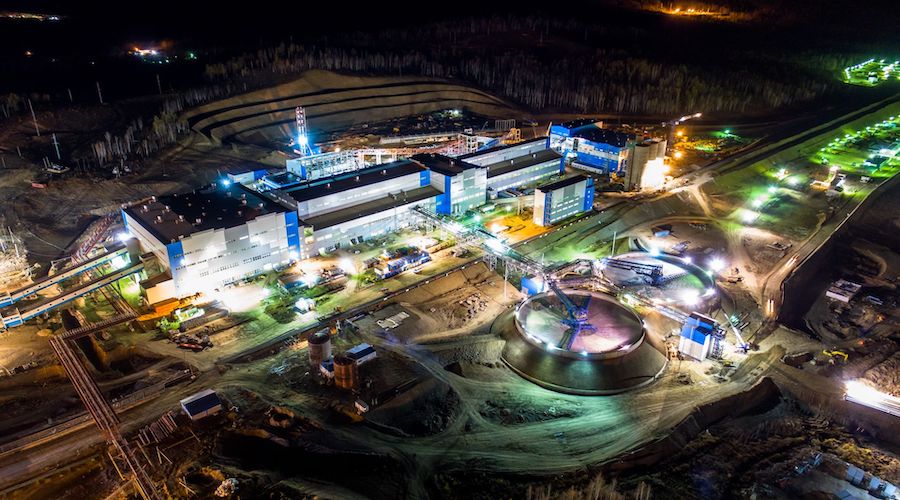Norilsk cleared to pay debt in foreign currency, Potanin says

Russia’s Ministry of Finance has cleared MMC Norilsk Nickel PJSC to pay off its foreign debts in currencies other than the ruble, said Vladimir Potanin, the company’s president and biggest shareholder.
The mining company, which dominates the palladium market, has already paid the coupon of its dollar-denominated bond that was due on March 11, Potanin said in an interview with Russian newspaper RBC that was published on Saturday.
Norilsk was due to make an interest payment of $6.4 million on a $500 million note maturing in 2025. The company had a separate $500 million note due April 8 that was repaid earlier this week, Potanin said. The bond was called on March 9, Bloomberg data shows.
“Non-payment of even a small amount leads to cross-defaults on all obligations,” said Potanin, Russia’s richest man and one of the few tycoons to escape sanctions. “And, accordingly, we, I think, do not need to face a situation where all the debts of enterprises and sovereign debt become urgent to repay. This, in my opinion, is not in our interests.”
Potanin’s comments come as money managers from New York-based BlackRock Inc. to London-based Ashmore Group Plc report significant losses and writedowns because the value of Russian assets has plunged in the wake of the invasion of Ukraine.
Norilsk Nickel accounts for about 40% of global palladium output, as well as roughly 10% of platinum and refined nickel. It also produces 3% of the world’s cobalt supply.
President Vladimir Putin signed a decree on March 5 ordering Russian debtors to pay foreign creditors in rubles in Russia regardless of the currency in which the debt was issued. Paying in a currency different than the one established in the bond documents without the consent of the creditor is widely seen as a default.
According to the new rule, creditors from countries deemed “friendly” — ones that haven’t introduced sanctions — may receive payments in foreign currency if the Ministry of Finance gives the debtor a special permission to make that payment.
Payment schedules
The new measure has created confusion among foreign investors. Energy giants Gazprom and Rosneft repaid dollar-denominated bonds earlier this week. But bondholders of Trans-Siberian operator Russian Railways received interest payments on a dollar-denominated bond 10 days after the due date, and they hadn’t received interest payments for a euro-denominated bond due March 9 as of March 11.
Potanin didn’t specify if creditors from all countries would receive the payment in foreign currency. Norilsk got its license for three months extendable for another three months, he said.
Potanin has openly criticized Putin’s retaliation against sanctions, from his threat to nationalize foreign assets to restricting debt repayments abroad.
In the interview with RBC, Potanin said he had hoped the government would grant major companies such as Norilsk blanket exemptions from the ban on foreign currency purchases to allow them make coupon payments and pay interest on bonds.
“But after consultations with the leadership of the Central Bank it became clear that this kind of exemption from currency controls is not desirable and even impossible. That’s why they chose a different scheme by setting up a commission under the supervision of the Finance Ministry chaired by [Finance Minister Anton] Siluanov which will examine requests from companies,” he said.
(By Irene García Pérez)
{{ commodity.name }}
{{ post.title }}
{{ post.date }}




Comments